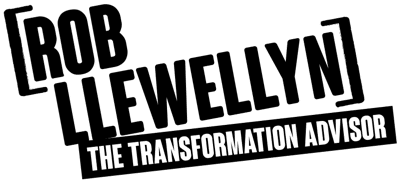2015 global CIO survey : Creating legacy
A new survey conducted by Deloitte University Press has resulted in a rich 72-page report that shares the views of more than 1,200 CIOs across 21 industries, 20% of whom sit inside Global 1000 companies.
The report tells us that only 9% of these CIOs say they have all the skills they need to succeed, and that 60% of CIOs from larger organisations cited attracting, retaining, and motivating talent as a defining success characteristic. On the other hand, we learn from the survey that despite these two facts, talent was not a top five enterprise priority.
Among the participating CIOs from 43 countries, 33% report to the CEO, 22% to the CFO, 14% to the board of directors, 11% to the COO, 9% to the global CIO, and 11% to an assortment of other roles. 89% of the CIOs reporting to the CEO were very satisfied with their relationship, while 47% of the 1,200+ CIOs believed they would be more effective in a different reporting relationship.
Chapter 1. Framing the CIO legacy
This chapter explains how CIO legacy defines how technology leaders are delivering value to their organisations today and how they are preparing themselves and developing the people, processes, and technologies for tomorrow. It explores how the four framing elements listed below shape the context in which CIOs deliver value:
- Business priorities
- Leadership and talent
- Relationships
- Technology investment
Chapter 2. Sculpting your CIO legacy
Here the report uncovers three different patterns that describe how CIOs are delivering value, and how they are preparing for what comes next.
- Trusted operators deliver operational discipline and enabling technologies, support business transformation efforts, and align
to business strategy. - Change instigators take the lead on technology enabled business transformation and change initiatives. They allocate significant time to supporting business strategy and delivering emerging technologies.
- Business co-creators spend most of their time driving business strategy and enabling change within their businesses to see that there is effective execution of the strategy.
Chapter 3. Navigating the legacy landscape
This chapter explains how CIOs need to evaluate their current position against their current business frame and consider what might be required when they need to move from one pattern to another.
- Organisations facing foundational issues related to reliability and performance need trusted operators at the helm.
- A change instigator may be needed when an organisation has had a long-tenured CIO who has been unwilling or unable to drive change, or when the business wants to use technology to better engage with end-user customers. Also, any technology-enabled business transformation initiative could signal the need for a CIO change instigator.
- When companies are growing quickly, their organisation likely needs a business co-creator in the CIO role. While business acumen, stakeholder buy-in, and a long-term view of technology investments are paramount, there is no substitute for a solid CIO co-creator. This role is often one that is earned over time—and is rarely handed out to new CIOs.
Chapter 4: CIO legacy as both art and science
This chapter consists largely of a collection of quotes from some of the CIOs surveyed, such as this one:
“My job is to enable the business via technology to get better results and to help the organization—people and teams—be their best.”
– Francesco Tinto, vice president and CIO, Kraft
The authors of the report explained how conducting detailed interviews with so many CIOs enabled them to identify these four significant themes:
- Making IT matter
- Helping people to be more effective in both work and life
- Achieving business leadership beyond CIO
- Giving back
Appendix: Survey questions and responses
The appendix is certainly worth a mention because it contains the data from the answers to 26 questions, and a few extracts are shown below:
What do you consider to be the defining characteristics of a successful technology leader?
#1 response given by 79% of the CIOs:
The ability to influence internal stakeholders (CEO, CFO, CMO, business leaders, etc.)
#2 response given by 70% of CIOs:
Communication and interpersonal skills
#3 response given by 62% of CIOs:
Understanding the organisation’s strategic priorities
What would enable you to create the biggest impact on your business?
#1 response given by 50% of the CIOs:
Driving technology-led business transformations
#2 response given by 46% of CIOs:
Driving business innovation
#3 response given by 44% of CIOs:
Increased participation in business strategy
